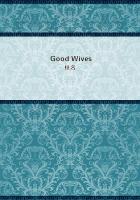Neither was there any possibility of satisfying the covetous little devil. Phoebe threw down a whole handful of cents, which he picked up with joyless eagerness, handed them over to the Italian for safekeeping, and immediately recommenced a series of pantomimic petitions for more.
Doubtless, more than one New-Englander--or, let him be of what country he might, it is as likely to be the case--passed by, and threw a look at the monkey, and went on, without imagining how nearly his own moral condition was here exemplified. Clifford, however, was a being of another order. He had taken childish delight in the music, and smiled, too, at the figures which it set in motion. But, after looking awhile at the long-tailed imp, he was so shocked by his horrible ugliness, spiritual as well as physical, that he actually began to shed tears; a weakness which men of merely delicate endowments, and destitute of the fiercer, deeper, and more tragic power of laughter, can hardly avoid, when the worst and meanest aspect of life happens to be presented to them.
Pyncheon Street was sometimes enlivened by spectacles of more imposing pretensions than the above, and which brought the multitude along with them. With a shivering repugnance at the idea of personal contact with the world, a powerful impulse still seized on Clifford, whenever the rush and roar of the human tide grew strongly audible to him. This was made evident, one day, when a political procession, with hundreds of flaunting banners, and drums, fifes, clarions, and cymbals, reverberating between the rows of buildings, marched all through town, and trailed its length of trampling footsteps, and most infrequent uproar, past the ordinarily quiet House of the Seven Gables. As a mere object of sight, nothing is more deficient in picturesque features than a procession seen in its passage through narrow streets. The spectator feels it to be fool's play, when he can distinguish the tedious commonplace of each man's visage, with the perspiration and weary self-importance on it, and the very cut of his pantaloons, and the stiffness or laxity of his shirt-collar, and the dust on the back of his black coat. In order to become majestic, it should be viewed from some vantage point, as it rolls its slow and long array through the centre of a wide plain, or the stateliest public square of a city; for then, by its remoteness, it melts all the petty personalities, of which it is made up, into one broad mass of existence,--one great life,--one collected body of mankind, with a vast, homogeneous spirit animating it. But, on the other hand, if an impressible person, standing alone over the brink of one of these processions, should behold it, not in its atoms, but in its aggregate,--as a mighty river of life, massive in its tide, and black with mystery, and, out of its depths, calling to the kindred depth within him,--then the contiguity would add to the effect.
It might so fascinate him that he would hardly be restrained from plunging into the surging stream of human sympathies.
So it proved with Clifford. He shuddered; he grew pale; he threw an appealing look at Hepzibah and Phoebe, who were with him at the window. They comprehended nothing of his emotions, and supposed him merely disturbed by the unaccustomed tumult. At last, with tremulous limbs, he started up, set his foot on the window-sill, and in an instant more would have been in the unguarded balcony. As it was, the whole procession might have seen him, a wild, haggard figure, his gray locks floating in the wind that waved their banners; a lonely being, estranged from his race, but now feeling himself man again, by virtue of the irrepressible instinct that possessed him. Had Clifford attained the balcony, he would probably have leaped into the street; but whether impelled by the species of terror that sometimes urges its victim over the very precipice which he shrinks from, or by a natural magnetism, tending towards the great centre of humanity, it were not easy to decide. Both impulses might have wrought on him at once.
But his companions, affrighted by his gesture,--which was that of a man hurried away in spite of himself,--seized Clifford's garment and held him back. Hepzibah shrieked. Phoebe, to whom all extravagance was a horror, burst into sobs and tears.
"Clifford, Clifford! are you crazy?" cried his sister.
"I hardly know, Hepzibah," said Clifford, drawing a long breath.
"Fear nothing,--it is over now,--but had I taken that plunge, and survived it, methinks it would have made me another man!"Possibly, in some sense, Clifford may have been right. He needed a shock; or perhaps he required to take a deep, deep plunge into the ocean of human life, and to sink down and be covered by its profoundness, and then to emerge, sobered, invigorated, restored to the world and to himself. Perhaps again, he required nothing less than the great final remedy--death!
A similar yearning to renew the broken links of brotherhood with his kind sometimes showed itself in a milder form; and once it was made beautiful by the religion that lay even deeper than itself. In the incident now to be sketched, there was a touching recognition, on Clifford's part, of God's care and love towards him,--towards this poor, forsaken man, who, if any mortal could, might have been pardoned for regarding himself as thrown aside, forgotten, and left to be the sport of some fiend, whose playfulness was an ecstasy of mischief.
It was the Sabbath morning; one of those bright, calm Sabbaths, with its own hallowed atmosphere, when Heaven seems to diffuse itself over the earth's face in a solemn smile, no less sweet than solemn. On such a Sabbath morn, were we pure enough to be its medium, we should be conscious of the earth's natural worship ascending through our frames, on whatever spot of ground we stood.
The church-bells, with various tones, but all in harmony, were calling out and responding to one another,--"It is the Sabbath!















